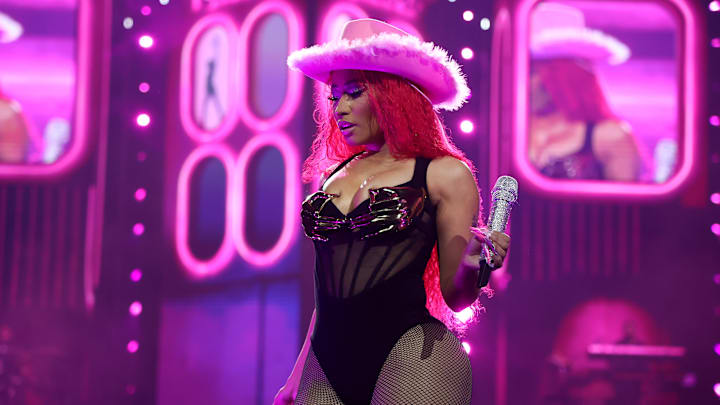In a groundbreaking move, over 200 influential artists, including Billie Eilish, Nicki Minaj, Metro Boomin, and Pearl Jam, have banded together to confront a critical issue plaguing the music industry: the unauthorized exploitation of their music by artificial intelligence (AI) companies. This unprecedented collaboration underscores the gravity of the situation and the urgent need for action to safeguard artists’ rights and livelihoods.
The open letter
At the forefront of this movement is the Artist Rights Alliance, a collective of artists committed to defending their creative work. In a powerful open letter, they call upon AI companies to cease using artists’ music without proper authorization for the purpose of training AI algorithms. The stakes are high, and the artists are resolute in their demand for respect and protection.
The threats posed
The heart of the matter lies in the misuse of AI technology. By ingesting vast troves of digital images and data, AI systems churn out derivative works that compete directly with the original creations.
For artists like Kelly McKernan, whose vibrant acrylic and watercolor paintings grace galleries and digital platforms, this infringement is deeply personal. McKernan, along with two other artists, is currently embroiled in a legal battle against AI toolmakers. Their lawsuit seeks to preserve copyrights and careers, but it also symbolizes a broader struggle faced by creators worldwide.
The David vs. Goliath battle
"We’re David against Goliath here, McKernan asserts. "
The artists’ fight is not merely about financial compensation; it’s about protecting their artistic legacy.
As AI continues to evolve, the question looms large: Can human creators maintain control over their work in a world increasingly dominated by algorithms?
Hollywood actors, novelists, musicians, and computer programmers all grapple with the same dilemma. The battle lines are drawn, and the outcome will shape the future of creativity itself.
Is there any legal framework to address this issue?
Certainly! The intersection of art and artificial intelligence (AI) has sparked a complex legal landscape. Let’s delve into the legal frameworks addressing the unauthorized use of artists’ music by AI companies:
- EU Copyright Rules and AI Music Outputs: A recent report within the Europe project examines the impact of AI on music creation. Specifically, it focuses on what they term “AI music outputs”—any music-related content generated by or with the assistance of AI systems. The report analyzes how EU copyright rules apply to these AI-generated music outputs. It grapples with questions of authorship, ownership, and attribution in this evolving landscape.Notably, the study also reviews practices and contractual arrangements related to claiming and attributing authorship and ownership in the field of AI music creation.
- European Parliament’s Move for Fair Compensation: Concerns have arisen regarding AI’s ability to mimic voices without proper contracts with artists. This exploitation necessitates regulations. On January 17, the European Parliament overwhelmingly voted in favor of establishing a new EU legal framework. The goal is to ensure fair compensation for artists, especially in the context of AI-generated content2.
- Challenges and Controversies: Artists argue that using their works to “train” AI applications without authorization constitutes copyright infringement. However, AI companies often claim this falls under fair use. The tension between protecting artists’ rights and fostering AI innovation remains unresolved3.
In this dynamic landscape, artists, lawmakers, and technology experts continue to grapple with the balance between creativity, innovation, and legal protection. The battle for artistic integrity wages on, and the outcome will shape the future of music and AI.
The collision between art and AI is no longer science fiction; it’s our reality. As artists unite against AI exploitation, they send a resounding message: Creativity cannot be commodified or diluted by machines. The fight for artistic integrity rages on, and the world watches closely. Will the artists prevail, or will the algorithms rewrite the narrative? One thing is certain: The battle has just begun.
